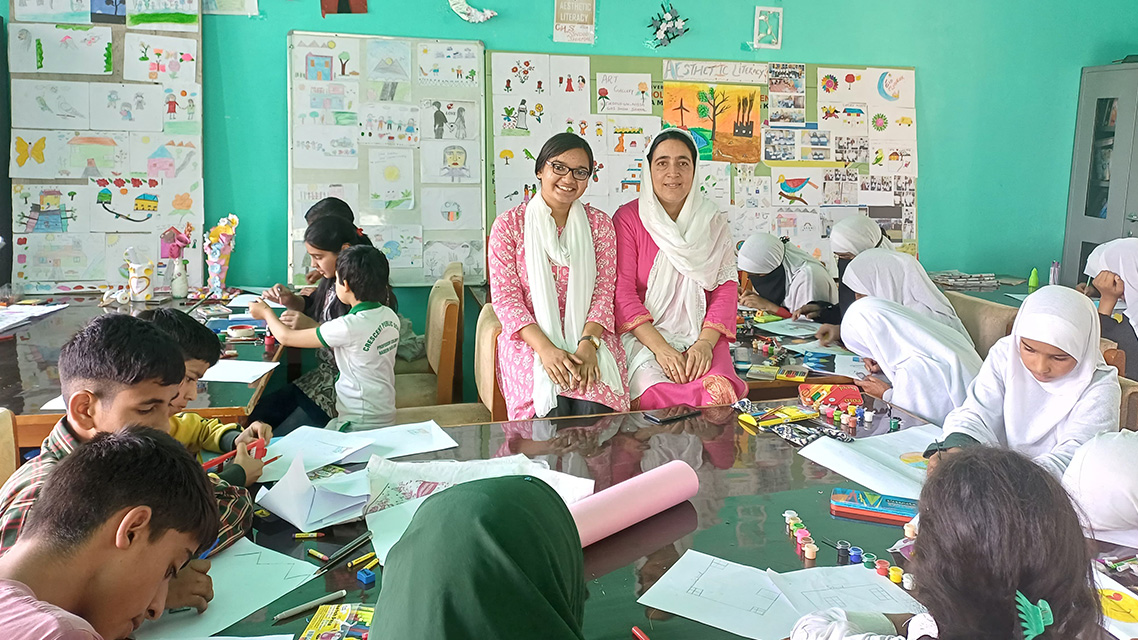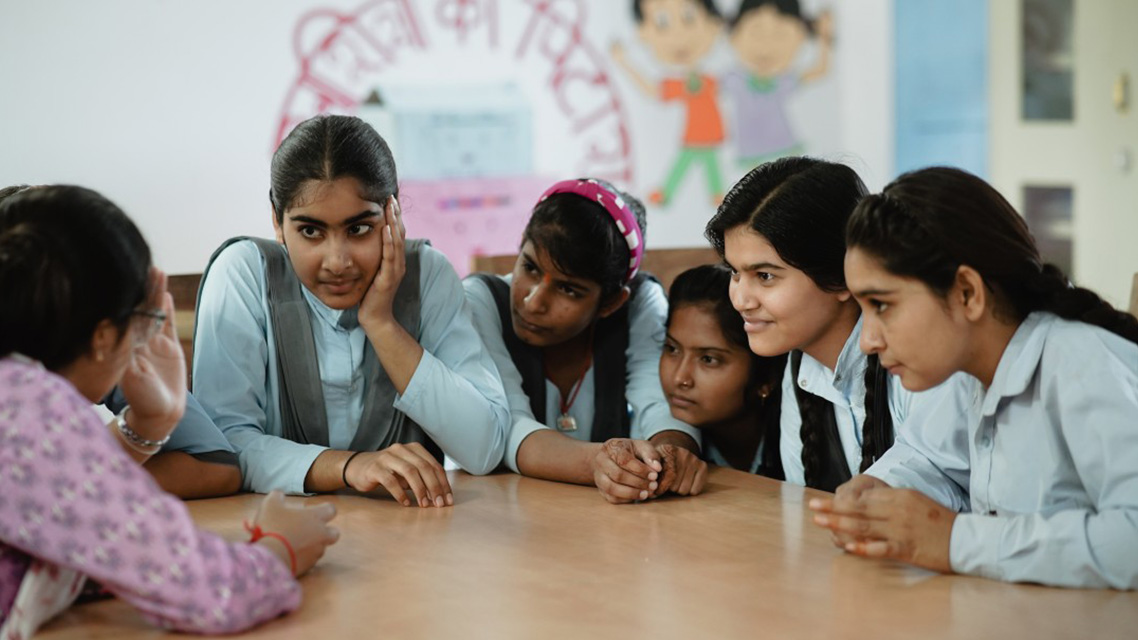
In government school classrooms across India, there's a familiar figure - Rakesh. He embodies the silent struggle of many. Each day, Rakesh reluctantly enters school, burdened by the inability to understand lessons. Despite trying, academic success eludes him. Both teachers and classmates label him lazy, deepening his isolation. Now, seated among his peers, Rakesh is a shadow of his former self. Each attempt to participate is met with ridicule. With each passing day, he is convinced that school isn’t for him. Rakesh eventually drops out of school.
This narrative reflects systemic challenges in our education system, where students who struggle in an exam-oriented setup often fall through the cracks. Children like Rakesh are labelled as not smart enough, & denied the opportunity to explore their interests.
An intuitive and compassionate teacher holds the power to transform the lives of children like Rakesh. However, in a system grappling with a colonial legacy, leadership opportunities may be limited, sometimes leaving educators feeling constrained by protocol. Burdened educators and middle managers in the education system focused on other administrative tasks, fail to address the unique learning needs of each student.
While some progress has been made to address this flaw, with landmark legislations like the Right to Education Act (2009), featuring Continuous, Comprehensive Evaluation and a no- detention policy till class 9, they still fall short of fully equipping learners like Rakesh.
Building upon these efforts, the National Education Policy, 2020 prioritised experiential learning, critical thinking, and creativity. This marked a departure from an exam-centric approach, addressing the longstanding challenges in the education system
However, genuine transformation in education isn't just about policy shifts; it requires a fundamental change in perception and approach. Middle managers, often overlooked, hold the key to addressing this issue. Our six Centers of Excellence (CoEs) focus on developing the leadership skills of these managers, empowering them to become catalysts for systemic change.
By changing their own perceptions of themselves and promoting innovative pedagogical practices, we aim to make education more valuable for learners like Rakesh.
Each CoE targets specific gaps in the education system, contributing to its redefinition.

1. Center for Project-Based Learning
In 2021-22, the dropout rate for children in grades 1 to 8 nearly doubled, as per the UDISE+ report, due to economic challenges, disinterest, and a curriculum lacking focus on 21st- century skills.
The center addresses these challenges, making education about more than just textbooks. It bridges the divide between classroom learning and real-world application, catering to diverse learning styles overlooked by traditional methods.
Introducing PBL in Jhunjhunu, Rajasthan, spurred students to tackle local issues like water scarcity and poor nutrition. Initiatives such as a 'save water campaign' and a school kitchen garden were launched and fostered community responsibility and nurtured leadership skills among students and educators.
2. Center for Physical Literacy
The Center seeks to transform the perception of physical education and its needs by broadening its scope beyond competitive sports. Its mission is to instil motivation, confidence, and physical competency, encouraging lifelong engagement in various physical activities like martial arts, dance, yoga, or even a simple walk
The intervention in Madhya Pradesh is a case in point where the state government introduced a dedicated 45-minute period for Physical Literacy in the curriculum. Role- modelling by educators and Panchayat Elementary Education Officers (PEEOs) redefined the perception of physical education, with a focus on self-care and nutrition playing a pivotal role instead of competitions and medals.
3. Centre for Social, Emotional & Ethical Learning (SEE Learning)
In response to the stress and meaninglessness prevalent in classrooms, the Center for SEE Learning introduces a research-based curriculum in collaboration with Emory University. The objective of the centre has been to create a transformative learning experience that nurtures both the heart and mind, challenging the status quo.
Aligned with the center's vision of fostering safe spaces, the intervention in Jhunjhunu, Rajasthan, yielded an impressive 11% improvement in SEE learning outcomes. This initiative has effectively cultivated a state education ecosystem that prioritizes compassion and well- being
4. Center for Aesthetic Literacy
Inspired by India's rich artistic heritage, this center introduces theatre, music, and fine arts into classrooms, challenging the perception that art is unimportant. It empowers educators and learners to view art as a tool for self-expression and emotional resilience.
One notable initiative of the center is its collaboration with the Jammu and Kashmir government to introduce art-based therapy in government high schools. This initiative effectively addressed mental health challenges and tackled the prevalent drug issue in the region. By harnessing the power of art, students were provided with a platform for self- expression, facilitating trauma healing and overall well-being.
5. Center for Assessment Reform
The center focuses on answering a critical question: How do we measure the success of a child, a school, or our entire education system? Traditionally, academic performance has been the sole indicator used for assessments.
However, in today's rapidly changing world, this approach falls short. This center advocates for the development of assessment processes that go beyond academics to identify and support every child's learning needs. By doing so, it aims to provide a more comprehensive and accurate measure of success in education.
6. Center for Leadership Development (LEAD)
This center serves as the cornerstone upon which all other centers build and implement their initiatives. The center recognizes the need for leaders in the education system to bring real change. By prioritizing personal development and leadership within middle managers, it empowers them to lead the charge for transformative change, establishing a solid foundation for initiatives to take root and flourish.
This approach not only encourages middle managers to envision themselves as catalysts for change but also actively drives significant shifts in the educational landscape towards a more dynamic and future-ready system.
These centers collectively strive to rewrite the narrative in education and usher in an era where every learner is empowered. They strive to build an ethos of service, empathy, sustainability, and creativity which guides every aspect of a child’s learning journey.
TAGS
SHARE





